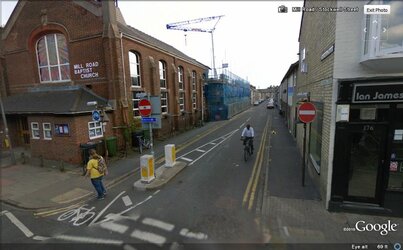XmisterIS
Purveyor of fine nonsense
http://www.bikebiz.c...e-members-clubs
In London anyway - very recently announced. I don't want to debate the costs or anything - but considering what people pay for gyms etc, a step in the right direction if it takes off.
Well, that is excellent progress! I hope it catches on in other places too and for the daily commuter, those prices are cheaper than running a car. The article to which I referred was published back in the 1990's.


